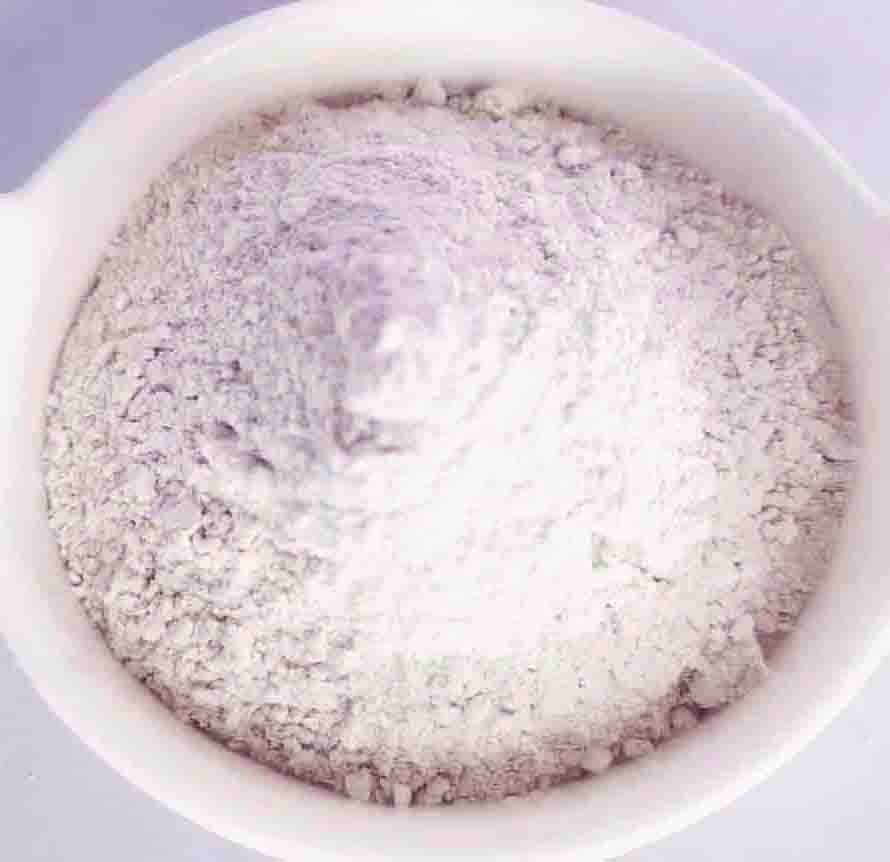Bentonite Grease
We produce organoclay bentonite grease. We can provide different models to you, whether your base oil is diesel, mineral oil or synthetic oil.
What is Bentonite Grease?
We have more than 20 years of experience in applying organoclayc bentonite clay to the production of grease. Here we would like to give you some very valuable suggestions, which all come from our practice and accumulation over these 20 years.
1), First of all, we can make it clear that when you apply organoclay bentonite to the production of grease lubricants, your grease will have good rheological properties, thickening properties, thixotropic suspension properties and high temperature stability.
2), At the same time, when you are using it, we recommend that you add a polar activator to promote better dispersion. Good dispersion will determine the complete performance.
3), So you must be curious, which polar activator should you choose? Because there are many polar activators on the market, you can choose one. After our experiments, we concluded that propylene carbonate is currently a very stable polar activator.
4), At the same time, we also recommend that you pre-gelate our organoclay bentonite when using it. This will make its dispersion more obvious. Then the amount of organic bentonite added is generally between 5% and 15% of the entire formula. As a polar activator, propylene carbonate is used in the formula so that its dosage is 10% to 40% of the dosage of organic bentonite.
We recommend that you obtain the data you want through a large number of tests.
Thanks to the formation of three-dimensional networks by bentonite clay particles within the grease’s structure; Bentonite Grease offers unparalleled mechanical stability and shear resistance features essential for maintaining consistent viscosity throughout temperature variations. The thixotropic character of Bentonite Grease facilitates easy flow under pressure but responds robustly at rest – which enhances reliable lubrication.
This specialized grease boasts multiple advantages in different applications. Its excellent load-bearing capacity protects surfaces against frictional damage – which increases equipment life span. Its suitability during sudden load changes or start-ups translates into peace of mind knowing that your machines’ performance will not be compromised.
The Bentonite Clay component forms an impervious barrier that resists moisture intrusion protecting against contamination originating from dust or other foreign materials. Additionally, Bentonite Grease provides incredible water resistance characteristics; a feature handy in harsh environments such as marine or mining sites.
How Does Bentonite Grease Work?
Through the inclusion of bentonite clay, the grease manifests thixotropic properties. This attribute implies that when subjected to pressure or force, it can become more fluid-like and readily flow; then when relieved from this state of stress it regresses back into its thicker consistency. When equipment is in motion, greases suffer shear forces that enable it to smoothly move as a lubricant on surfaces. On cessation of operations of machinery, continued presence of thickened grease provides substantial protection for surface contacts confined in their place.
Incorporating Bentonite Grease into machinery is advantageous because of its notable ability to resist heavy loads. The strong configuration formed by the bentonite clay particles aids in evenly dispersing weight and lowering friction between components which diminishes wear and tear over time, extending the longevity of equipment.
One cannot understate the importance of Bentonite Grease’s outstanding resistance against intrusion by water and moisture. Through incorporation of bentonite clay into its composition, this grease creates an impervious layer that shields sensitive machinery from damage caused by exposure to liquid elements. Particularly advantageous for equipment used frequently amidst aquatic environments like boating or outdoor usage scenarios, this property of Bentonite Grease ensures optimal protection without any disruptions to lubrication processes whatsoever.
Bentonite Grease boasts remarkable qualities for creating a secure seal against various substances’ penetration into lubricated surfaces within its applications. The incorporation of clay particles in its unique makeup helps prevent contamination from unwanted foreign objects such as residues, dirt build-up ultimately leading towards reduced equipment damage and corrosion expenses. Subsequently, this product maintains an accurate level of quality under fluctuating temperatures; it’s consistently effective during severe conditions without getting drippy nor melting off wherever possible.
What Color is Bentonite Grease?
Bentonite Grease owes its coloring partially to the specific type of bentonite clay present in manufacturing. Typically shades span a spectrum from pale beige or gray dependent on mineral content. However, additional ingredients alongside bentonite may also factor into final coloration for produced grease formulations also warranting consideration when characterizing product appearance.
On occasion, Bentonite Grease may display a noticeable golden tint. This coloration can materialize from a mix of elements, such as the inclusion of trace minerals or augmenting agents that bolster the lubricative characteristics of the grease. These additives might involve metal sulfonates or other substances that intensify the holistic effectiveness of the lubrication product.
It’s crucial to keep in mind that Bentonite Grease may possess varying shades, contingent upon its producer and components. Although a golden Bentonite Grease is widespread, it’s not the sole color you might discover.
What are the Four Types of Grease?
When it comes to ensuring seamless machine operation and protecting equipment from abrasion, leverage grease’s inherent properties concerning lubrication- as it’s incredibly beneficial in this regard. Among the many variations of grease accessible in the market, four broad categories deserve emphasis due to their unique qualities and individual applications. Taking into account particular lubrication needs helps decide which type will serve best.
1) Calcium-Based Grease
It’s worth noting the presence of a category of grease that implements calcium soap as the means by which it thickens. Those in the know value this grease largely due to its exceptional capacity for resisting water while carrying heavy loads without issue. It’s common practice to utilize this variety when seeking out greases capable of resisting water washout under trying circumstances-these scenarios include, but are not limited to, agriculture and construction contexts or any number among industrial applications.
2) Lithium-Based Grease
When it comes to reliable lubricants across industries such as automotive, industrial and marine applications, lithium-based grease is used. It relies on lithium soap as a thickener. This outstanding form of grease boasts exceptional mechanical stability, great heat resistance levels while offering high-grade protection against oxidation rates. General-purpose machinery alongside wheel bearing lubrication or complete car chassis greasing are just some examples where this plentiful type of lubricant comes in handy..
3) Bentonite Clay-Based Grease
Bentonite Clay-Based Grease earns its name from the presence of bentonite clay acting as a thickener. With impressive mechanical stability and resistance to shear forces, it proves ideal for rigorous scenarios. The grease exhibits thixotropic characteristics; it flows easily under pressure but thickens during periods of rest. Its typical uses include high-performance tasks in heavy industrial machinery, mining operations and marine environments.
4) Barium Complex Grease
For those specifications requiring robust lubrication in heavy-duty industrial applications like steel manufacturing, cement plants or paper mills – the solution could be quite simple: Barium complex grease. Its key ingredient is barium soap used as a thickener which contributes multiple features such as excellent resistance to high temperatures for consistent performance when it matters most; rugged load-carrying capacity for machinery with especially hefty demands; resistance to rust & corrosive elements in hostile environments where reducing downtime means achieving reliable levels of productivity.
Advantages of Bentonite Clay-Based Grease
When it comes to comparison between different types of grease products with regards to their attributes and practical utility, it’s notable that Bentonite Clay-Based Grease exhibit enhanced water resistance that makes it stand out amongst lithium-based ones. Although lithium-based ones are known for a broader operating temperature range and easy availability across different formulations and consistency grades.
A general advantage for the users when choosing this particular grease product is its affordability when put side by side with barium complex alternatives while possessing a superior sealing capacity along with protection against potential harm caused by its exposure to moisture.
As an added benefit for heavy-duty machineries or high-pressure conditions users; the Bentonite clay formulation offers supreme mechanical stability whilst containing available shear resistance capabilities without fail. Calcium-based products have gained accolades for their ability to impart impeccable water washout-resistance attributes offering top-tier performance under moist conditions.
Still in all departments except washout characteristics, the overall limited concerns encountered within the presence of moisture & temperature range, Bentonite Clay-Based Grease represents a better option for the majority of practical applications if you seek a wider temperature operating range in addition to promising resistance against mechanical shear issues.
Is Bentonite a Lubricant?
Bentonite itself is not typically used as a lubricant in its pure form. Bentonite is a type of clay mineral primarily composed of montmorillonite, known for its unique properties. However, when bentonite clay is incorporated into a grease or lubricant formulation, it can contribute to the lubricating properties of the final product.
Bentonite clay is often utilized as a thickening agent or additive in lubricants, including greases. When combined with a base oil and other additives, bentonite clay can help enhance the lubricity, mechanical stability, and performance of the grease. The clay particles in the grease form a network-like structure that helps reduce friction and wear between moving parts.
So while bentonite itself is not used as a standalone lubricant, it can play a significant role in improving the lubricating properties of grease or other lubricant formulations when used as an additive.
Bentonite Grease Substitute Recommendations
If you have been using Bentonite Grease and require its specific advantages, it is advisable to continue using Bentonite Grease rather than substituting it with a different type of grease.
Switching to a different type of grease, particularly a soap-based grease, may not provide the same level of performance or compatibility. Bentonite Grease and soap-based greases have different chemical compositions, and mixing them can lead to issues such as incompatibility or a loss of lubricating properties.
Obtain Bentonite Grease from suppliers or manufacturers like Zhejiang Camp-Shinning that specialize in clay-based lubricants is recommended to ensure that you maintain compatibility and obtain a product that meets your specific lubrication needs.
Is Bentonite Grease and Bentone Grease similar?
Yes, Bentonite Grease and Bentone Grease are similar in the sense that they both utilize clay-based thickeners. However, it’s important to note that “Bentone” is a brand name for a specific type of grease that incorporates a particular type of clay, often referred to as “bentone clay” or “organophilic clay.”
Bentone Grease, as a brand-specific formulation, may contain additional additives and base oils that can vary depending on the manufacturer and intended application. The bentone clay used in Bentone Grease formulations is typically derived from natural bentonite clay, which undergoes specific treatments and modifications to enhance its performance as a thickener in the grease.
In essence, Bentonite Grease is a broader term that encompasses grease formulations utilizing various types of bentonite clay as a thickening agent, while Bentone Grease specifically refers to greases that incorporate bentone clay from a particular brand or manufacturer.
Where Can I Buy Bentonite Grease?
If you’re looking to buy Bentonite Grease, one reputable manufacturer to consider is Zhejiang Camp-Shinning. We are a well-known and trusted producer of Bentonite Grease, organoclay and organophilic clay, offering high-quality products that meet industry standards.
Visit Zhejiang Camp-Shinning’s official website, where you can find detailed information about our Bentonite Grease products, specifications, and contact details. When contacting Zhejiang Camp-Shinning or their authorized distributors, be prepared to provide specific details about your requirements, such as the desired quantity, application details, and any additional specifications or preferences you may have.


